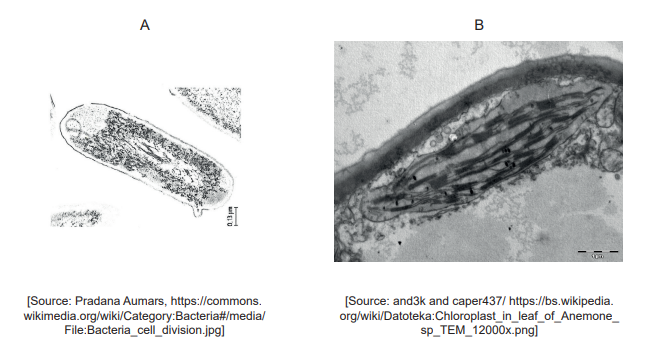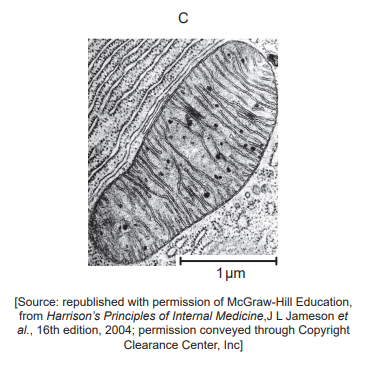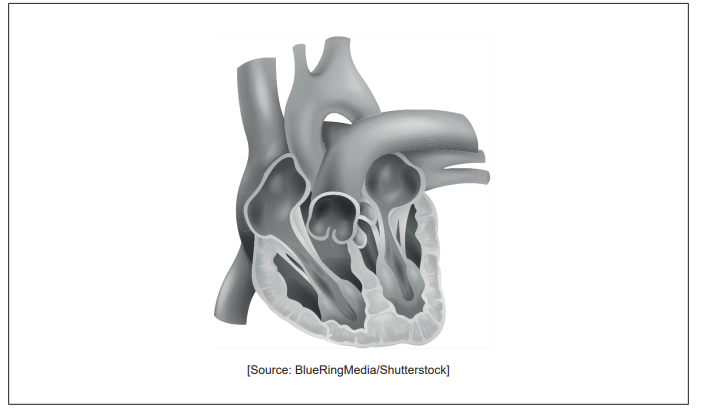Question
(a) Identify which electron micrograph shows a mitochondrion, providing one observation to support your choice.


(b) Discuss the evidence for the theory that mitochondria may have evolved from free-living prokaryotes by endosymbiosis.
Answer/Explanation
Ans:
a) «micrograph» C cristae/double membrane is visible/«folds of» membranes inside
b)
a. «double» membrane may have formed when engulfed
b. replicate by binary fission like free-living prokaryotes
OR reproduce separate from «host» cell replication
c. they have their own «circular» DNA AND reproduce on their own
d. they have «70s» ribosomes AND can manufacture «their own» proteins e. have organelle«s» similar to free-living prokaryotes
f. similar in size to free-living prokaryotes
g. mitochondrial inner membranes manufacture ATP like bacterial membranes
Question
(a) The diagram shows the human heart.

On the diagram, label
the aorta.
the right atrium.
b. Explain how valves control the flow of blood through the heart.
c. Outline the causes and consequences of blood clot formation in coronary arteries.
d. Outline the role of lymphocytes in defence against disease.
Answer/Explanation
Ans:
a (i) & (ii) both labelled clearly as in diagram

b)
a. valves open and close in response to changes in blood pressure/heart contraction/pumping
b. valve prevents backflow/maintains direction of blood flow
c. valves allow heart chambers to fill/to empty
c)
a. coronary heart disease/CHD/coronary artery disease/CAD occurs when there is reduction of oxygen to the heart muscle
b. high ratio of LDL to HDL/fatty diet leads to plaque formation in arteries
c. plaque breaks off causing damage that activates blood clot formation
d. clots «in the bloodstream» may block a coronary artery/coronary thrombosis reducing blood flow/oxygen
OR
clots can cause heart attack/muscle death
e. sickle cell anemia «crisis» produces blood clots «that can cause coronary/arterial blockage»
d)
a. produce antibodies
b. memory cells confer immunity
c. specific immunity results from production of antibodies specific to a particular antigen
d. recognize pathogens
